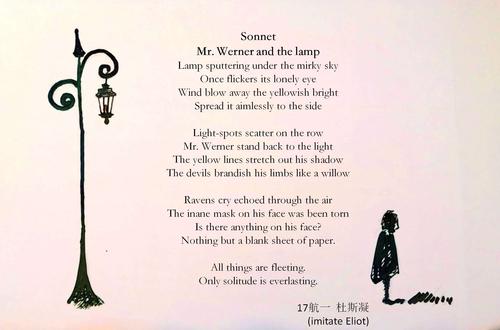拜占庭英文拼写
If you're interested in exploring English poetry with a focus on the Byzantine Empire, you're in for a fascinating journey. The Byzantine Empire, with its rich history, art, and culture, has inspired numerous poets to create works that evoke its grandeur, mystique, and influence. Here are a few key points to consider as you set sail into the world of Byzantineinspired English poetry.
Understanding the Byzantine Empire
Before delving into Byzantineinspired poetry, it's beneficial to have a foundational understanding of the Byzantine Empire. The Byzantine Empire, also known as the Eastern Roman Empire, existed for over a millennium, and its influence extended across the Mediterranean world. Its capital, Constantinople (modernday Istanbul), was a center of wealth, art, and learning.
Poetry of W.B. Yeats: "Sailing to Byzantium"
One of the most renowned poems inspired by the Byzantine Empire is W.B. Yeats' "Sailing to Byzantium." Written in 1926, this poem reflects Yeats' fascination with the art and culture of the Byzantine era. In "Sailing to Byzantium," Yeats explores the themes of aging, art, and the desire for transcendence. The poem's evocative language and imagery offer a powerful entry point into the world of Byzantineinspired English poetry.
T.S. Eliot and Byzantine Imagery
T.S. Eliot, another influential modernist poet, incorporated Byzantine imagery and themes in his works. In "The Waste Land," he references the Byzantine Emperor, as well as the iconic city of Constantinople. Eliot's use of Byzantine elements adds layers of historical and cultural depth to his poetry, providing a unique perspective on the Byzantine Empire's enduring impact.
Exploring Byzantine Aesthetics in Poetry

Byzantine art and architecture, known for its intricate mosaics, grand domes, and religious motifs, have also served as sources of inspiration for English poets. Exploring how poets interpret and evoke Byzantine aesthetics in their verse can offer a deeper appreciation for the interplay between visual and literary art forms.
Suggestions for Further Reading
1.
"Sailing to Byzantium" by W.B. Yeats:
An indepth analysis of Yeats' iconic poem can offer valuable insights into how the Byzantine Empire has sparked poetic imagination.2.
Byzantine Art and Its Influence:
Understanding the visual elements of Byzantine art can enhance your appreciation of how poets capture its essence in words.3.
Comparative Studies:
Exploring comparative studies on Byzantine history, literature, and art alongside English poetry can provide a comprehensive understanding of the intersections between these disciplines.Conclusion
Embarking on a literary voyage to explore English poetry inspired by the Byzantine Empire is a rewarding endeavor. From Yeats' longing for immortality amid artistic splendor to Eliot's evocative references to Byzantine iconography, the poetic landscape offers a rich tapestry of Byzantineinspired works waiting to be discovered and appreciated. Bon voyage on your poetic pilgrimage to Byzantium!
Remember, the journey of discovery in English poetry inspired by the Byzantine Empire is as enriching as the destination itself. Happy exploring!







